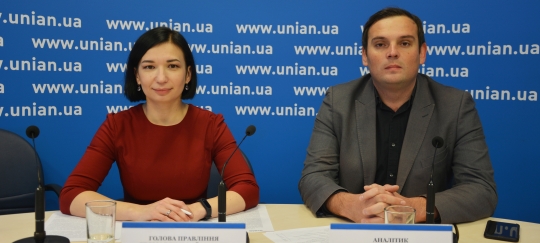259 of 382 heads of raion state administrations are unaffiliated. 123 heads are members of political parties. These are the results of a research made by Civil Network OPORA concerning party affiliation of heads at raion state administrations. However, we have managed to get official information about 382 persons, and the information about 62 heads is still unavailable.
Almost 88% (108 of 123 heads of RSAs) are members of the Petro Poroshenko Bloc “Solidarity”. 5 individuals are members of the AUU Batkivshchyna. One head represents each of parties Nash Krai, Vidrodzhennia, and Agrarian Party. 7 heads are members of other political parties.
OPORA's observers have also gained information about party affiliation of 258 first deputy heads and 282 deputy heads of RSAs. Thus, over 74% (192) first deputy heads of RSAs are unaffiliated. 18.22% (47) first deputy heads of RSAs are members of the Petro Poroshenko Bloc “Solidarity”, 7 – AUU Batkivshchyna, 3 – Agrarian Party, and 2 – Vidrodzhennia and Radical Party of Oleh Liashko each.
219 of 289 verified deputy heads of RSAs are unaffiliated (almost 78%). 43 of 289 deputy heads of RSAs (15%) are members of Petro Poroshenko Bloc “Solidarity”. 9 individuals belong to the membership of AUU Batkivshchyna. Radical Party of Oleh Liashko and All-Ukrainian Union Svoboda have three deputy heads each.
In the light of upcoming election of the President of Ukraine, OPORA would like to draw attention of state officials at all levels that they should act in line with current legislation and international standards during the election process.
Thus, according to the Law of Ukraine On Public Service, political views must not influence decisions or actions of a civil servant, who must not demonstrate his/her attitude to any political party or share political views while in office. Article 10 of this law prohibits to use one's office, or a position of civil servants, officials at local self-government bodies, employees in budget sector, or other individuals for the purpose of election campaigning or participation in events organized by political parties.
Electoral legislation also establishes a number of restrictions for state officials at different levels. For example, state authorities and local self-government bodies are prohibited to intrude in an election process. Unbiased attitude of state authorities and local self-government bodies, their officials or employees, to candidates for the President of Ukraine, belongs to a problem of equal rights and opportunities in an election process.
The Law of Ukraine on Election of the President of Ukraine prohibits state authorities, their employees and officials, to participate in campaigning efforts while in office (except for when it's a candidate for President himself). Candidates for the President of Ukraine, who hold offices at state government bodies, are prohibited to use subordinates, office transport, communication, equipment, premises, or other objects or resources at his or her place of employment, for campaigning purposes. They are also not allowed to campaign during staff or production meetings, and corporate meetings. It is also prohibited to use the premises of state government bodies for campaigning events, and place campaign materials and political advertisement on buildings and in premises of state government bodies.
Based on October-November 2018 monitoring findings, OPORA informs that the formal level of politicization of local government bodies is not too high, but there is still a significant risk that state officials will use their powers for campaigning purposes.
Civil Network OPORA would like to emphasize that heads of local state administrations and their deputy heads should refrain from political functions both during early and official campaigning when in office. Local government bodies should demonstrate an initiative in introduction of ethical standards in activities of state officials during election process.
OPORA would like to emphasize that this matters need to be regulated by the legislation, establishing a clear distinction between political active officials and civil servants.
OPORA also calls on political parties to refuse from the use of available levers of influence on activities of state government bodies and their officials.
For comment, please contact:
Olha Aivazovska,
coordinator of electoral and political programs,
063 617 97 50, [email protected]
